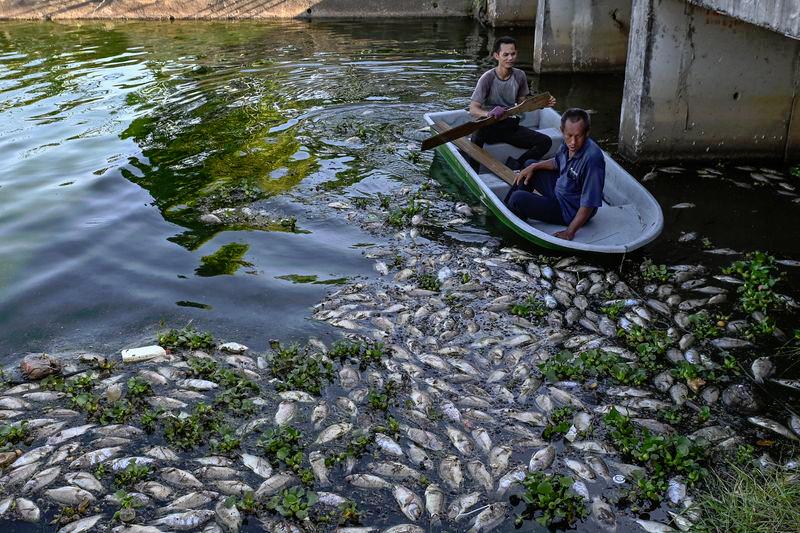PETALING JAYA: Universiti Malaysia Pahang Al-Sultan Abdullah (UMPSA) is prepared to share its expertise in investigating the cause of the mass death of hundreds of kilograms of tilapia and ‘lampam’ fish in the Taman Bandar Indera Mahkota lake recently.
According to Berita Harian, UMPSA vice-chancellor Prof Datuk Dr Yuserrie Zainuddin said several factors could contribute to the mass death of fish in the lake, including natural factors such as temperature changes and oxygen depletion, as well as human-induced pollution from agricultural, industrial and urban sources.
ALSO READ: Dead fish in Taman Matahari Lake not caused by our sewage plant effluent, says IWK
Last week, it was reported that over 500kg of dead tilapia and “lampam’ fish were removed from Taman Bandar Indera Mahkota lake within a week.
“Rising water temperatures, changes in salinity and ocean acidification are some of the main consequences that disrupt fish habitats and physiology,“ he was quoted as saying.
“Toxic pollution, including agricultural runoff, industrial waste and domestic pollution can also severely impact the ecosystem.
“Common toxic substances like heavy metals, pesticides, and industrial chemicals can cause sudden, progressive or prolonged fish deaths.”
Yuserrie also pointed out that toxic substances can interfere with physiological processes, reduce immune function and increase susceptibility to diseases.
Additionally, diseases can be a major cause of fish deaths, particularly in dense aquaculture environments where high fish populations facilitate the rapid spread of pathogens.
Climate change contributes to rising water temperatures, which can increase the rate of parasite and pathogen transmission, leading to significant fish mortality and affecting both wild and farmed fish populations.
Therefore, he said a team of experts will examine the lake’s environmental aspects and take water samples if they receive approval from the Kuantan city council (MBK).
“Previously, we conducted a study after catfish and tilapia farmers in Sungai Jerantut suffered major losses when 50 to 70 percent of their farmed fish died.
“From a technological perspective, the research team plans to install a monitoring system to detect water quality parameters and environmental factors that also affect fish health,” he added.









